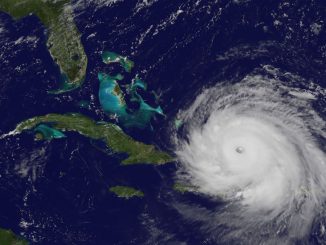
A Cuban medecine, Interferon alfa 2B (IFRrec), is being used to combat the global pandemic of the new coronavirus. The treatment is not definitive, but while the world’s largest pharmaceutical companies are fighting about a permanent cure for Covid-19, the Cuban drug is used in many countries with good results.

The Chinese authorities were the first to use it to combat the disease. In fact, there is a Chinese-Cuban joint venture in the Asian giant that has been producing the drug since 2007 and has been used with good results for fighting viral diseases, especially hepatitis B and C, as well as HIV infections.
According to doctor of science Luis Herrera Martínez, one of the creators of the drug from the Cuban business group BioCubaFarma, “Interferon alfa 2B has the advantage of being a protective mechanism against such situations, its use prevents patients likely to get worse and more complicated reaching this stage, and eventually die.”
Countries like Spain, Mexico, Venezuela and Nicaragua are using the drug to treat confirmed cases in their territories. While other nations, such as Italy and Jamaica, requested support from the Caribbean island to combat the virus that is already in more than 110 countries around the world.
Moreover, the Cuban government yesterday (Monday, March 16) offered to help the isolated British cruise ship in the Caribbean, after having been refused to dock in several countries due to the cases of Covid-19 on board.
The MS Braemar which belongs to the British company Fred Olsen Cruise Lines, carries 682 passengers and 381 crew members. He arrived in the Bahamas last Saturday, where it was not allowed to dock, it was only given permission to anchor southwest of Freeport.
The Braemar is anchored about 25 miles off the coast of the Bahamas where it is supplied with food, fuel and vital medicines. The passengers are mostly British but there are also Canadian, Australian, Belgian, Colombian, Irish, Italian, Japanese, Dutch, New Zealand, Norwegian and Swedish citizens.
The Cuban Ministry of Foreign Affairs said that it would receive the ship and provide assistance to patients due to a humanitarian issue and the need for “a shared effort to confront and stop the spread of the pandemic”.
To date, Cuba has registered 5 coronavirus Cov-Sars 2 positive cases, three of them are Italian tourists and two nationals. However, the health authorities maintain a permanent vigilance of entry borders and the close contacts to the positive cases.
Cuban medicine, even if it comes from an underdeveloped country, from the third world, is one of the most prestigious and altruistic in the world.
The fight against cholera in Haiti and against Ebola in Africa appears on its long list of collaborative services, and its presence in more than 20 countries to provide primary care services.

What is Interferon?
The Cuban medicine was developed at the Genetic Engineering and Biotechnology Centre, its creation was the idea of former Cuban President Fidel Castro.
Interferon is a substance made by cells of the immune system of vertebrate animals and can be produced in large quantities in the laboratory.
Refined from bacteria or yeast it is called recombinant and counteracts viral diseases and is useful in fighting certain types of cancer and other viral diseases such as Covid-19.
Drug administration is by injection, but in China it was applied by nebulization because it is a fast way to reach the lungs and it acts at the early stage of infection.
Cuba has created very prestigious unique medicines, including: Heberprot-P for to cure diabetic foot; the CIMAvax-EFGC vaccine gave hope to the survival of people with lung cancer; PPG is mainly used to lower cholesterol, but it has been shown that it has antiplatelet, antiischemic and antithrombotic effects; VA-MENGOC-BC is the only effective vaccine in the world that attacks meningococci B and C.
NOTE FROM THE EDITOR
The world is going through an unprecedented health crisis and although KARICULTURE.NET is a magazine dedicated to culture and traditions in the Caribbean islands, we publish this article written by our Cuba correspondent, Amelia Duarte de la Rosa, to show our solidarity.



